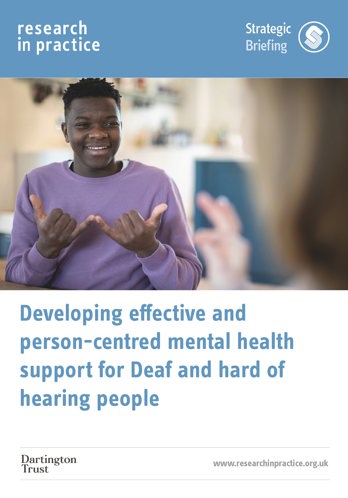Developing effective and person-centred mental health support for Deaf and hard of hearing people: Strategic Briefing (2021)
As a strategic leader, taking time to fully consider the cultural and linguistic issues for Deaf and hard of hearing people, and recognising the way these might interact with mental health issues, is a crucial basis for an improved response. Research has highlighted that Deaf and hard of hearing people may feel a ‘double stigma’ when accessing services because they have continually to explain their needs both as a person experiencing mental health difficulties and as a Deaf or hard of hearing person (Cabral et al., 2013, p. 652).
Strategic leaders’ first task, then, is to recognise fully the potential co-existence of deafness and mental health difficulties and the different forms that this may take. From there, issues of accessibility, co-production of services, multi-agency working via systems leadership, communication, and identity can all be considered.
Professional Standards
PQS:KSS - Person-centred practice | Effective assessments and outcome based support planning | Direct work with individuals and families | Organisational context | Influencing and governing practice excellence within the organisation and community | Assuring good social work practice and development
PCF - Values and ethics | Diversity and equality | Knowledge | Contexts and organisations
RCOT - Develop intervention | Collaborative
This publication is a premium resource
Access the full publication with a one-off purchase or enjoy the benefits of membership.

